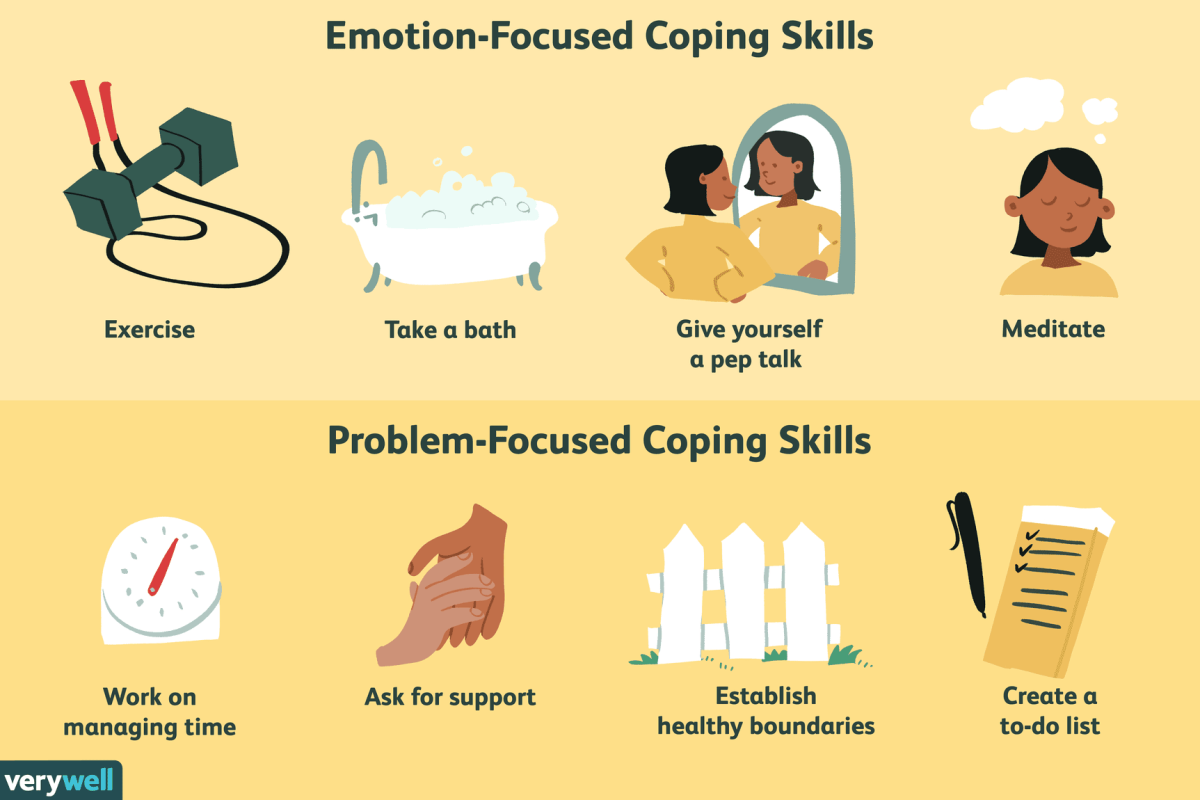Stress is an inevitable part of life, and it is essential to find efficient strategies to cope with it on a daily basis. Long-term exposure to stress can have detrimental effects on our physical and mental health, leading to various diseases and disorders. Therefore, incorporating effective coping mechanisms into our routine is crucial for a healthy and balanced lifestyle.
Recognizing the Signs of Stress
Before we delve into coping strategies, it is important to understand the signs and symptoms of stress. When we feel overwhelmed, our body and mind exhibit various indicators such as irritability, anxiety, changes in appetite, difficulty concentrating, and trouble sleeping. By recognizing these signs, we can take proactive measures to manage stress before it escalates.
Healthy Lifestyle Habits
Implementing healthy habits can significantly contribute to stress reduction. Engaging in regular physical exercise, such as walking, yoga, or swimming, helps release endorphins, which are natural stress-fighting hormones. Additionally, maintaining a balanced diet and getting adequate sleep play vital roles in managing stress levels. Proper nutrition and a well-rested body aid in maintaining a stronger immune system, promoting clarity of mind, and enhancing overall well-being.
Mindfulness and Relaxation Techniques
Mindfulness and relaxation techniques are powerful tools to combat stress. Incorporating practices like meditation, deep breathing exercises, or journaling can help calm the mind, increase self-awareness, and lessen anxiety. Taking a few minutes each day to focus on the present moment and redirecting our thoughts away from stressors can significantly impact how we handle stress on a long-term basis.
Time Management and Prioritization
One of the leading causes of stress is feeling overwhelmed by a lack of time or a long to-do list. Effective time management and prioritization skills help alleviate this burden. Breaking down tasks into smaller, manageable steps and setting realistic goals can reduce stress levels by providing a sense of control and accomplishment. Utilizing organizational tools such as to-do lists or digital calendars can also help in keeping track of tasks and deadlines.
Social Support and Communication
Building a strong support system is crucial in dealing with stress. Sharing thoughts, emotions, and experiences with trusted friends, family members, or professionals can provide reassurance, advice, and different perspectives. Talking through our stressors releases pent-up tension and offers a sense of relief. Engaging in social activities or joining support groups further strengthen these support networks and promote a sense of belonging.
Leisure Activities and Hobbies
Engaging in enjoyable activities and hobbies can significantly reduce stress levels. Whether it’s painting, playing a musical instrument, gardening, or any other creative outlet, these activities serve as a distraction from stressors and provide a sense of pleasure and fulfillment. Setting aside time each week to indulge in hobbies is a crucial part of self-care and an effective way to manage stress.
Setting Boundaries and Saying No
Learning to set healthy boundaries and saying no are essential skills in managing stress. Overcommitting ourselves to tasks, projects, or social engagements can lead to burnout and increased stress levels. Understanding our limits and prioritizing our own well-being allows us to focus on what truly matters and to effectively manage our stress levels.
Professional Help and Support
Lastly, if stress becomes overwhelming and interferes with our daily lives, seeking professional help and support is imperative. Therapists, counselors, or support groups can provide valuable guidance, techniques, and strategies for coping with stress. They offer a safe space to explore our stressors, underlying factors, and develop customized plans for effective stress management.
Conclusion
Stress is an inevitable part of life, but it doesn’t have to control us. By incorporating these effective coping strategies into our everyday routine, we can navigate stressful situations with resilience and maintain a healthier, more balanced lifestyle. Remember to prioritize self-care, seek support when needed, and stay committed to managing stress for long-term well-being.

